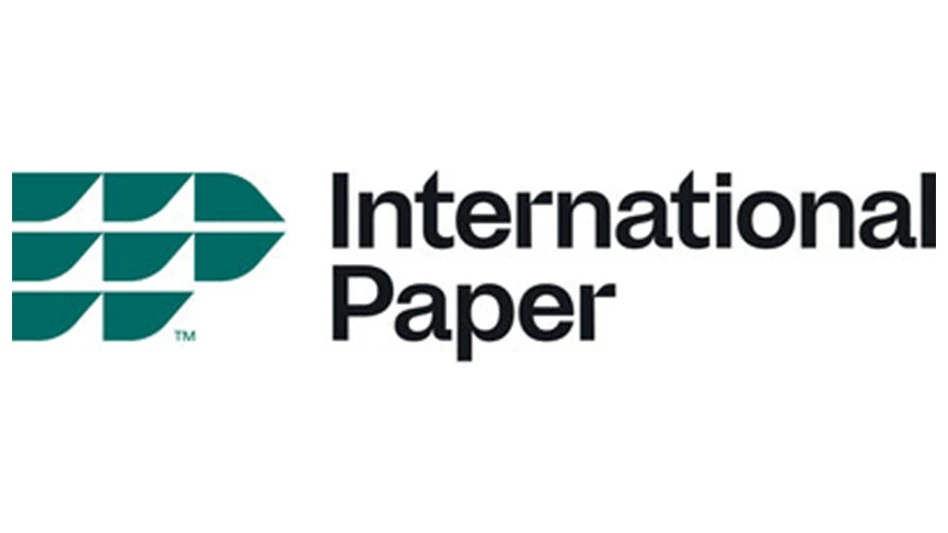
Logo courtesy of International Paper
International Paper (IP) reported third-quarter earnings this week, and along with earnings that CEO Andy Silvernail says are above its outlook, the company revealed plans to shut down a pulp and paper mill in South Carolina as well as provided an update on its proposed merger with London-based packaging company DS Smith.
IP’s net sales are up slightly year over year, with third-quarter net sales coming in at $4.7 billion compared with $4.6 billion in the third quarter of 2023.
The company’s industrial packaging segment accounted for the majority of those sales at $3.9 billion compared with $3.8 billion in the same period last year, while IP’s global cellulose fibers business brought in $710 million, and its corporate and intersegment sales brought in $50 million.
However, the industrial packaging segment brought in $197 million in operating profit, down from $325 million last year. IP attributes higher sales prices for boxes and containerboard being offset by seasonally lower sales volumes, high operating costs and higher planned outage costs for the reduced operating profit.
Overall, IP reports $150 million in net earnings for the quarter, down from $165 million in the same period last year, and $153 million in adjusted operating earnings, down from $224 million last year.
RELATED: IP sees boost in Q2 earnings; CEO expects near-term challenges
“Our third-quarter earnings are above our outlook,” Silvernail says. “Higher prices across the portfolio, including benefits from our packaging go-to-market strategy, were supported by a moderately improving box demand environment. We also had higher operating costs and lower volumes due to seasonality and commercial actions to improve profitability.”
As far as IP’s pending merger with DS Smith, the company says the regulatory process is still underway and it now expects the deal to close early in the first quarter of 2025 rather than the fourth quarter of this year.
“We are very excited to complete the DS Smith acquisition,” Silvernail said during the company’s earnings call Oct. 31. “We are bringing together two great organizations and building winning positions in the attractive markets of North America and Europe. … Our teams are actively involved in planning for the integration.”
While the company prepares for its merger with DS Smith, it also is moving forward with streamlining its operations, having announced yet another closure that will affect more than 600 employees. IP says it is exploring alternatives for its global cellulose fibers business.
IP’s pulp and paper mill in Georgetown, South Carolina, permanently will close by the end of this year, with the shutdown happening in stages. The move affects 674 employees—526 hourly and 148 salaried.
The Georgetown mill produces about 300,000 tons of fluff pulp annually as well as uncoated freesheet paper it sells to Sylvamo pursuant to a strategic contract, which IP and Sylvamo mutually agreed to terminate as of Dec. 31. IP plans to retain 100 percent of the mill’s fluff pulp capacity by transferring production to other mills and further reducing its “exposure to commodity pulp grades.”
The closure is the latest in a string of closures announced by IP recently. According to WARN notices filed in the facilities’ respective states, IP will close a packaging facility in Kansas City, Missouri, by Dec. 17 and lay off 132 employees; a container plant in Statesville, North Carolina, by Dec. 16 and lay off 74 employees; a container plant in Cleveland, Tennessee, where 115 employees will be laid off; and a corrugated sheet plant in San Antonio, where 89 employees will be affected. The company also plans to lay off 400 employees in Memphis, Tennessee, home of IP’s corporate headquarters.
"Going forward, we are laser-focused on delivering profitable growth as the low-cost, most reliable and innovative sustainable packaging solutions provider for our customers,” Silvernail says. "We are deploying an 80/20 approach to strategically align resources to become excellent with our customers, while reducing complexity and cost across the company. This includes organizational restructuring and corporate cost reductions, as well as investments to strengthen our most competitive and strategic assets, paired with facility closures to structurally reduce operating costs.
“In addition, we are exploring strategic options for our global cellulose fibers business. We recognize the impact of these difficult decisions and are providing support for team members who are affected.”
Latest from Recycling Today
- Orion ramping up Rocky Mountain Steel rail line
- Proposed bill would provide ‘regulatory clarity’ for chemical recycling
- Alberta Ag-Plastic pilot program continues, expands with renewed funding
- ReMA urges open intra-North American scrap trade
- Axium awarded by regional organization
- Update: China to introduce steel export quotas
- Thyssenkrupp idles capacity in Europe
- Phoenix Technologies closes Ohio rPET facility





